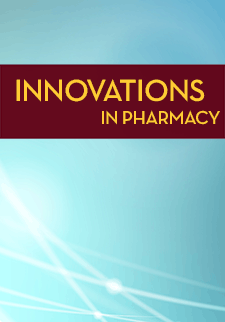Prevalence, Scope and Quality of Extemporaneous Medications in Selected Healthcare Facilities and Implications for Pharmacy Practice
Grace Lovia Allotey-Babington
University of Ghana
Irene Akwo Kretchy
University of Ghana
Esther Atiapa Asiedu
University of Ghana
Maxine Kelly Amuakwa
University of Ghana
Obedia Akwele Seaneke
Korle bu Teaching Hospital
Daniel Ankrah
Korle bu Teaching Hospital
Abredu Kwadwo Somuah
Korle bu Teaching Hospital
Agatha Dei Owusu-Nyamekye
Korle bu Teaching Hospital
Sarah Owusu-Ansah
37 Military Hospital
Patrick Kwame Effah
37 Military Hospital
Johnson Debrah
37 Military Hospital
Edna Acheampomaa Nai
Greater Accra Regional Hospital
Emmanuel Owusu
Greater Accra Regional Hospital
William Lamptey
Princess Marie Louise Children's Hospital
Isaac Julius Asiedu-Gyekye
University of Ghana
Henry Nettey
University of Ghana
DOI: https://doi.org/10.24926/iip.v15i1.5971
Keywords: extemporaneous products, compounding, pediatric
Abstract
Background: Extemporaneous compounding is the preparation of medicines for individual patients when no commercially available authorized form exists. Unlike registered medications, these products are not subjected to various tests for quality by Regulatory Authorities. Data on compounded medications in Ghana is currently inadequate or unavailable. There is the need to collate data that can be used to influence policy and to regulate preparation of extemporaneous products.
Aim: To establish the prevalence, scope and quality of extemporaneously compounded medicines at selected hospitals in Accra, Ghana.
Methodology: Prescriptions presented at the pharmacies in selected hospitals were reviewed to determine the requests that needed to be extemporaneously prepared as well as the prevalence and the scope of formulations. Three of the most frequently compounded medications were procured and subjected to microbial contamination tests using the pour plate method followed by differential tests if microbes were present. Content analysis of the active ingredients was determined using High Performance Liquid Chromatography (HPLC).
Results: 641 requests comprising 49 different extemporaneous products were collated from the hospitals studied. Hydroxyurea, furosemide and spironolactone suspensions were the three most frequently prescribed. Patients aged from 0-2 years had majority of the prescriptions.
Conclusion: A population of patients still exist who depend on compounding for their drug needs. 49 different formulations were prepared at one of the hospitals visited. Samples of products analyzed were of good quality.
Downloads
Author Biographies
Grace Lovia Allotey-Babington, University of Ghana
Department of Pharmaceutics and Microbiology
Irene Akwo Kretchy, University of Ghana
Department of Pharmacy Practice and clinical Pharmacy
Esther Atiapa Asiedu, University of Ghana
Department of Pharmaceutics and Microbiology
Maxine Kelly Amuakwa, University of Ghana
Department of Pharmaceutics and Microbiology
Isaac Julius Asiedu-Gyekye, University of Ghana
Department of Pharmacology and Toxicology
Henry Nettey, University of Ghana
Department of Pharmaceutics and Microbiology



